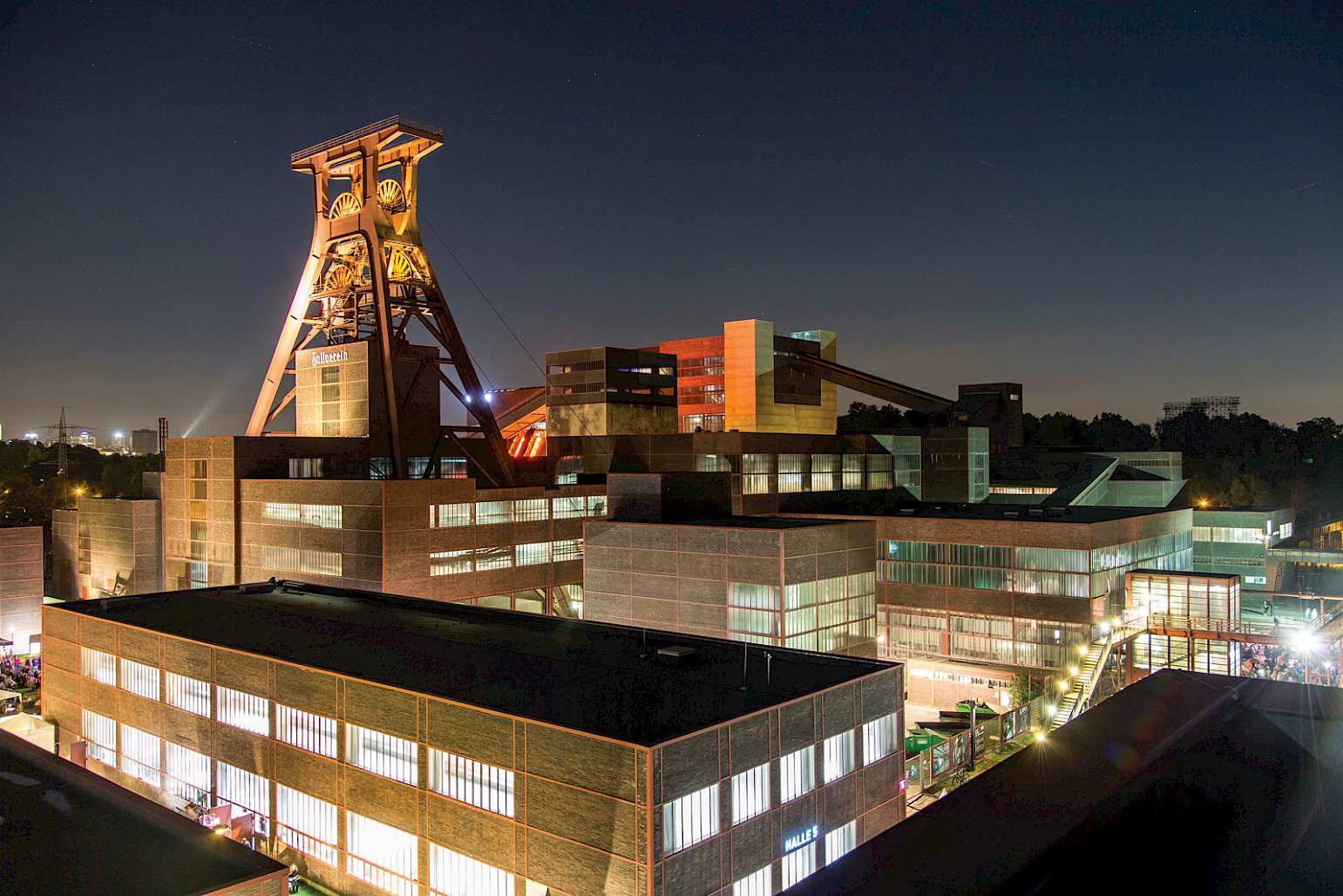
Zollverein Coal Mine Complex, Essen // From Coal and Steel to Arts and Culture IBA
The mining city of Essen is home to another significant stop on the ERIH—the Zollverein Coal Mine Industrial Complex, a UNESCO World Heritage site. Spread over 247 acres, the Zollverein shut in.

Zollverein Coal Mine Industrial Complex in Essen Germany Traveling Tour Guide
The Zollverein mine is one of Germany's most important industrial relics. Operative after 1847, the complex came to occupy more than eighty hectares in precincts which included coal shafts and a coking plant to supply steel mills. It also produced secondary products including ammonia, tar and crude oil. "Mine Shaft XII", deemed to be a.

The Mine Zollverein
The Zollverein XII Coal Mine Industrial Complex is an important example of a European primary industry of great economic significance in the 19th and 20th centuries. It consists of the complete installations of a historical coal-mining site: the pits, coking plants, railway lines, pit heaps, miner's housing and consumer and welfare facilities

Zollverein Coal Mine Industrial Complex Essen, Germany Editorial Stock Image Image of
Zollverein is a really big (14 sq.km) industrial complex that was the biggest coal mine of its day (1920s and 30s), and the grand industrial architecture served the purpose of impressing visitors with the mine owner's wealth and power. I took a guided tour that took almost 2.5 hours - the guide was really great and very informative.
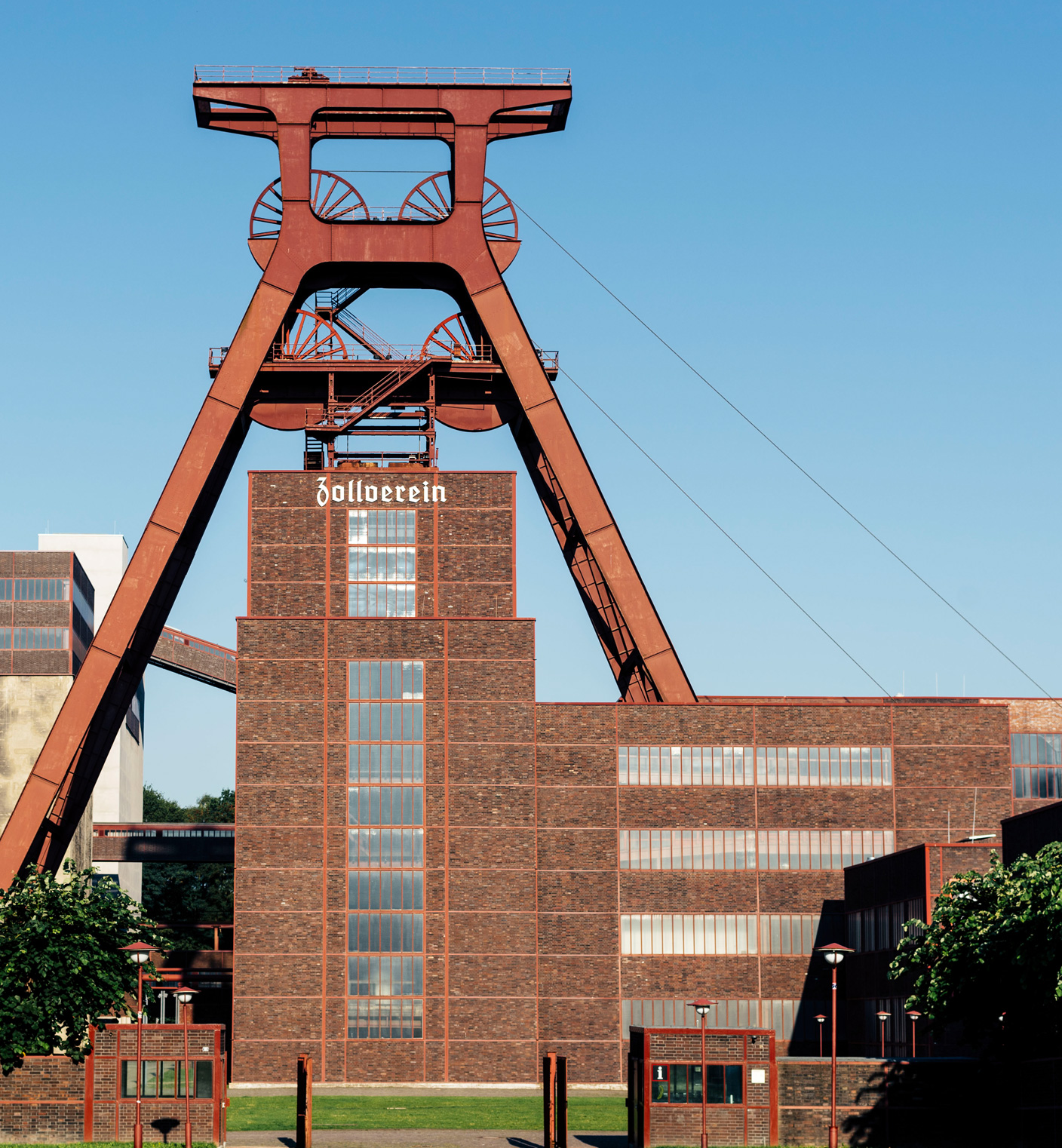
Industrial Beauty The Zollverein Coal Mine Industrial Complex Design & Build Review Issue
The Zollverein industrial complex in Land Nordrhein-Westfalen consists of the complete infrastructure of a historical coal-mining site, with some 20th-century buildings of outstanding architectural merit. It constitutes remarkable material evidence of the evolution and decline of an essential industry over the past 150 years.
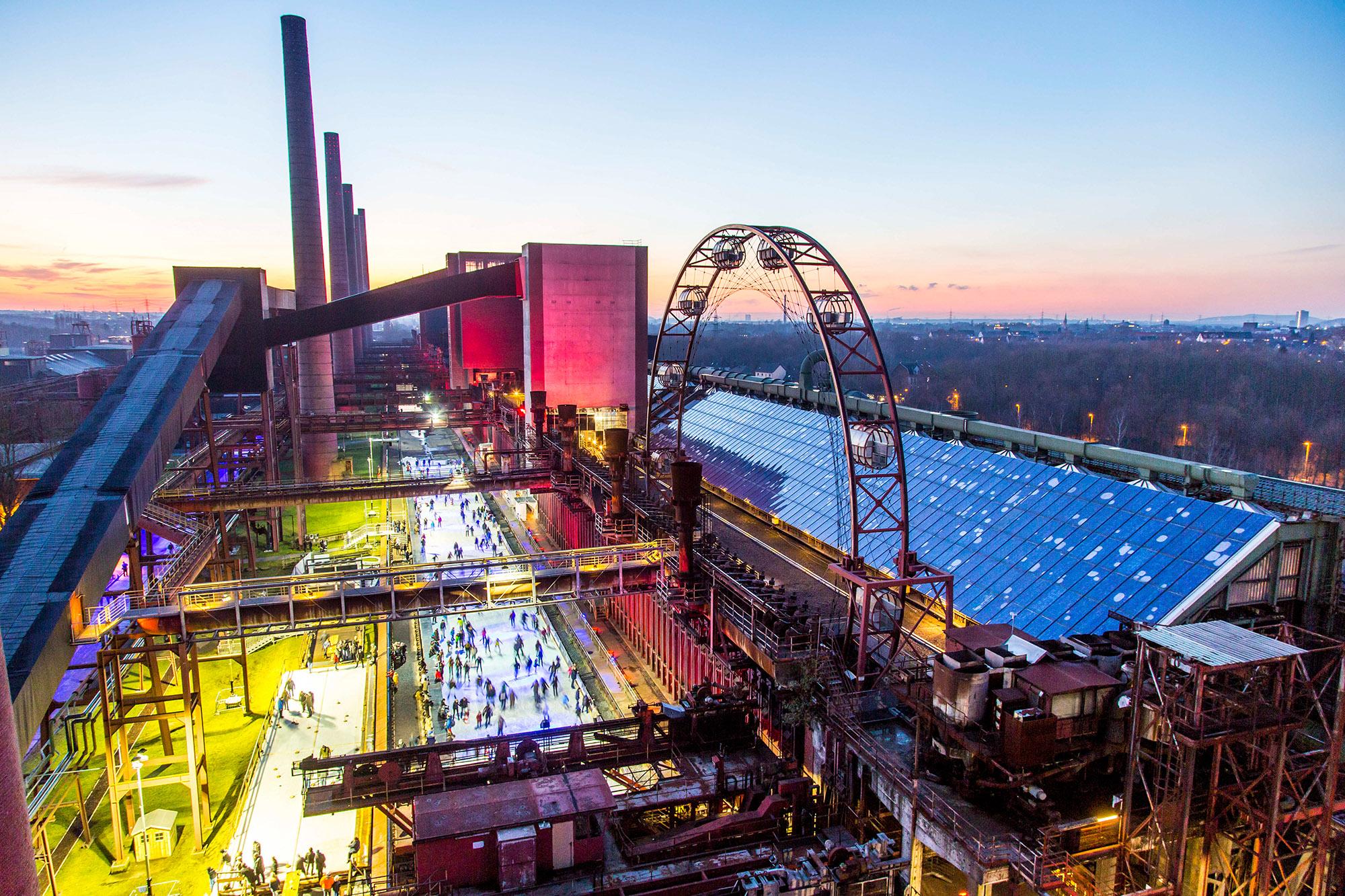
Zollverein Coal Mine Industrial Complex, Germany World Heritage Journeys of Europe
Named after the customs union of the 1830s, Zeche Zollverein was the largest coal mine in the world. Opened in 1851, it was part of the transformation of the largely agrarian Ruhr Valley (or Ruhrgebiet) in the early 19 th century, into an industrial powerhouse that fuelled 51 cities across a narrow strip of land. People riding bikes at Shaft.

Shaft tower of the mine Zollverein, Essen, Katernberg, Ruhr Area, NRW, North RhineWestphalia
This chapter analyzes the discussions surrounding the preservation and reuse of the former coal mine Zollverein in Essen, Germany. After the closure of Zollverein in 1986, disagreements arose over what to do with the site. The owners wanted to tear down parts of the complex. They were supported in this by the municipality of Essen.
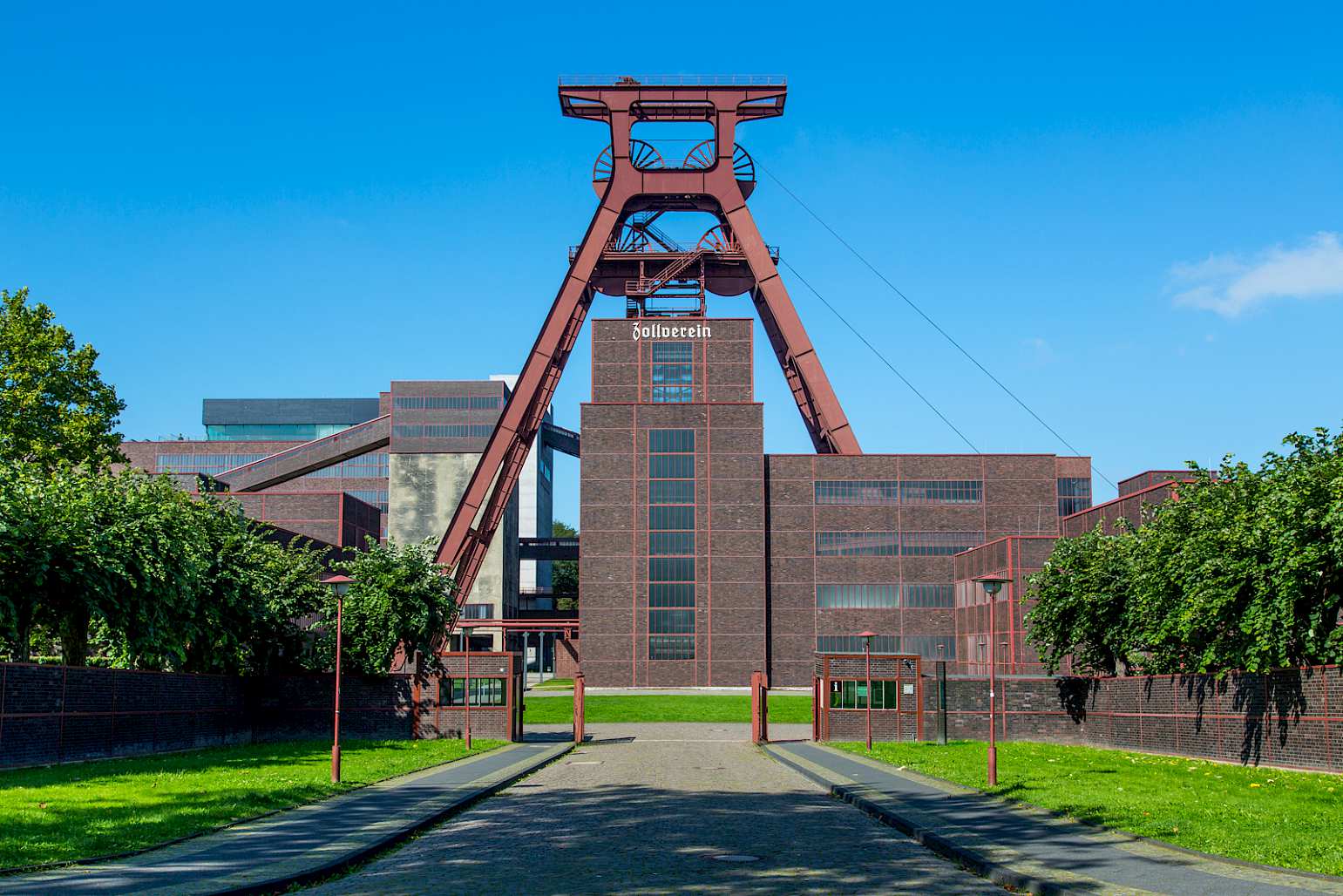
Zollverein Coal Mine Complex, Essen // From Coal and Steel to Arts and Culture IBA
The Zollverein Coal Mine Industrial Complex was awarded the designation of UNESCO World Heritage Site in 2001, and is one of the most impressive industrial monuments on the planet. Since the final working shift in 1986, Zollverein has been transformed into a prime site for the art, culture and creative sectors, attracting more than two million.
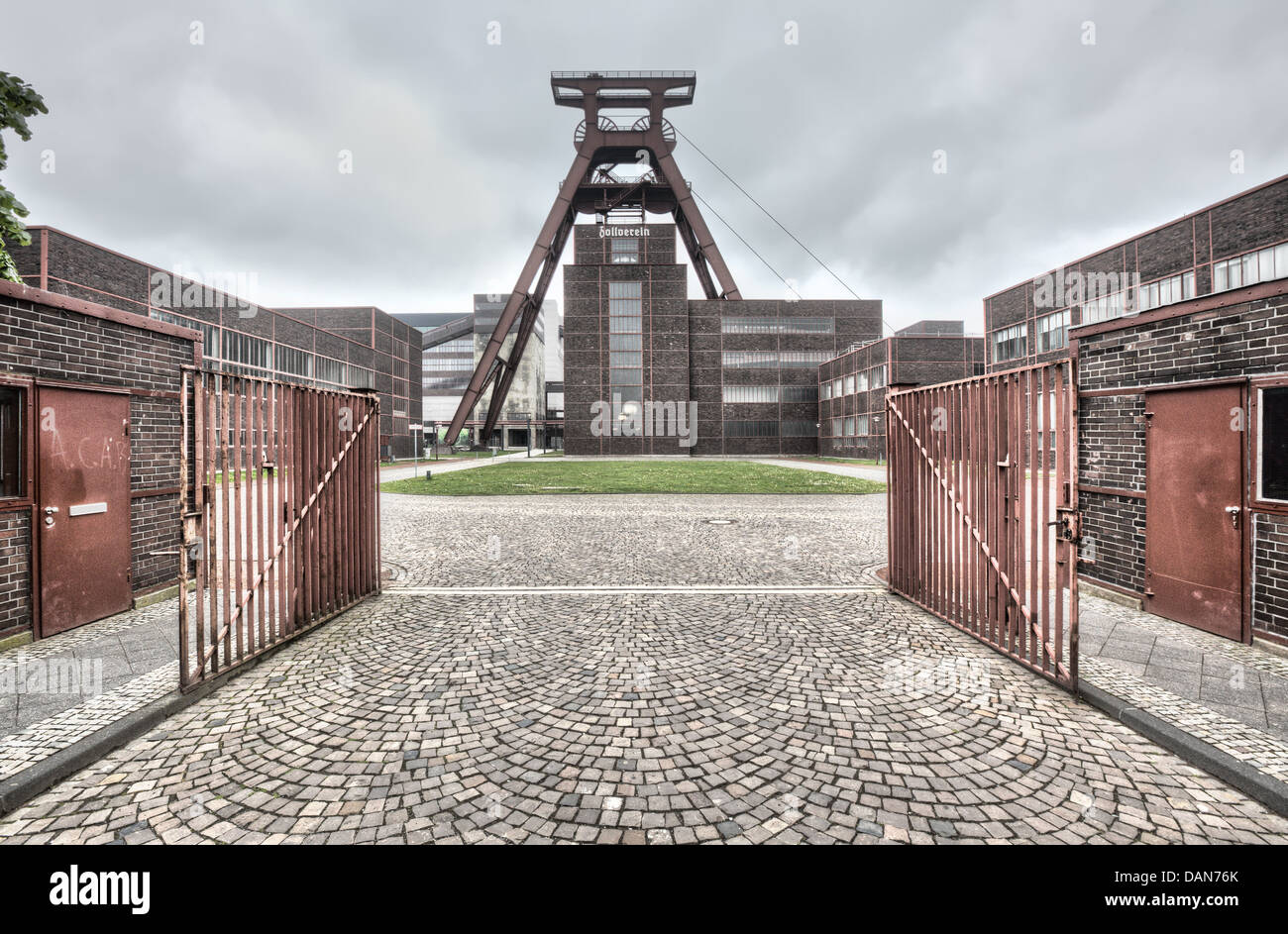
The main entrance to the Zollverein Coal Mine Industrial Complex in Essen Stock Photo Alamy
The Zollverein coal mine, Shaft XII, is the unique architectural expression of 20th century industrial modernism. It was built by the architects Fritz Schupp and Martin Kremmer on behalf of the "Vereinigte Stahlwerke" (United Steelworks) in pure functionalism from 1928 to 1932. The coal mine's output was 12.000 tonnes of coal a day.

Complexe industriel de la mine de charbon de Zollverein à Essen Dico Voyage
The Zollverein Coal Mine Industrial Complex (German Zeche Zollverein) is a large former industrial site in the city of Essen, North Rhine-Westphalia, Germany. The first coal mine on the premises was founded in 1847, and mining activities took place from 1851 until December 23, 1986. For decades, starting in the late 1950s, the two parts of the.
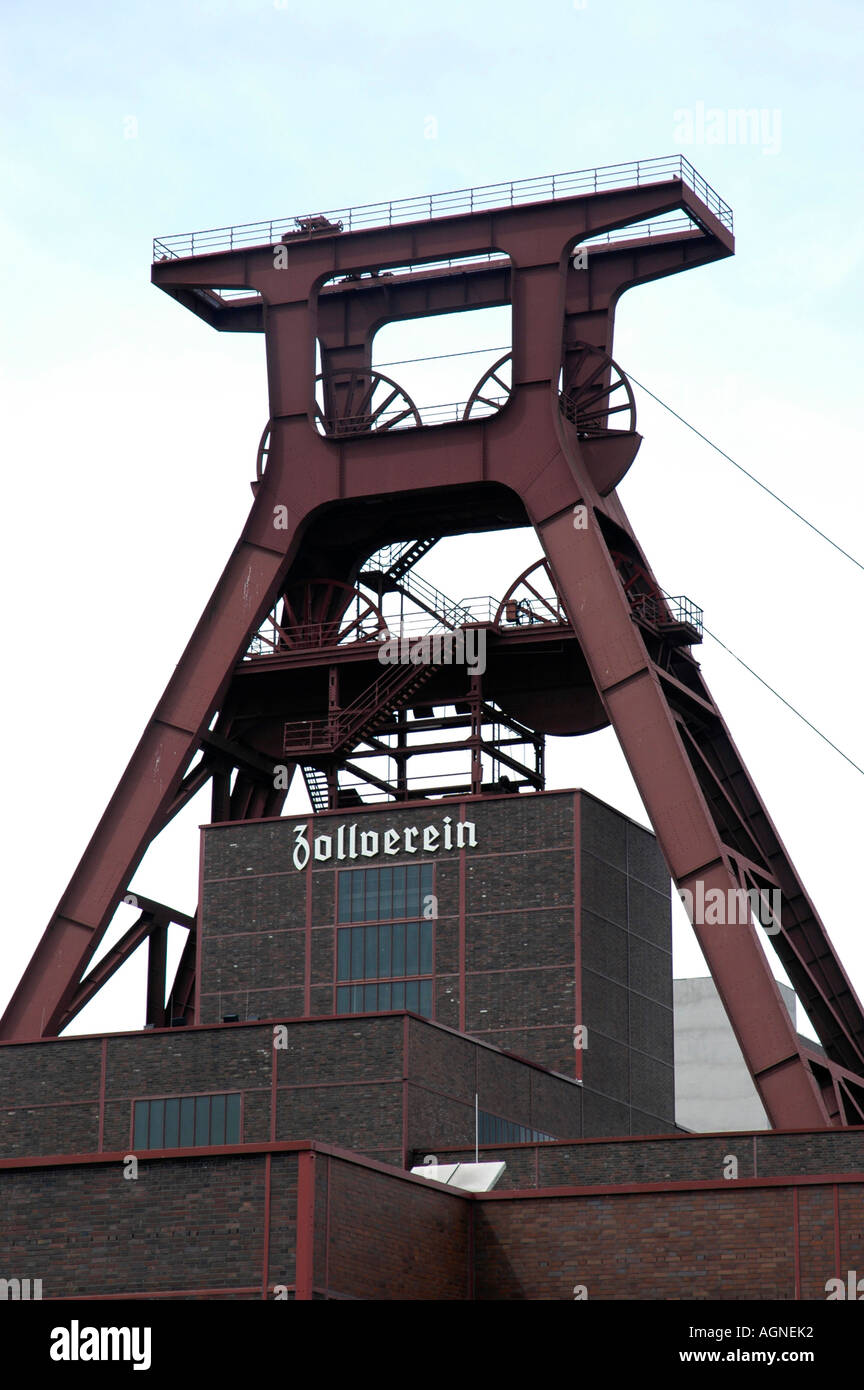
Shaft tower of the mine Zollverein, Essen, Katernberg, Ruhr Area, NRW, North RhineWestphalia
311. Opened in 1932, the Zollverein coal mine and coking plant merged modernism with machines in Bauhaus style. It's considered to be the world's most beautiful coal mine, and certainly lives.
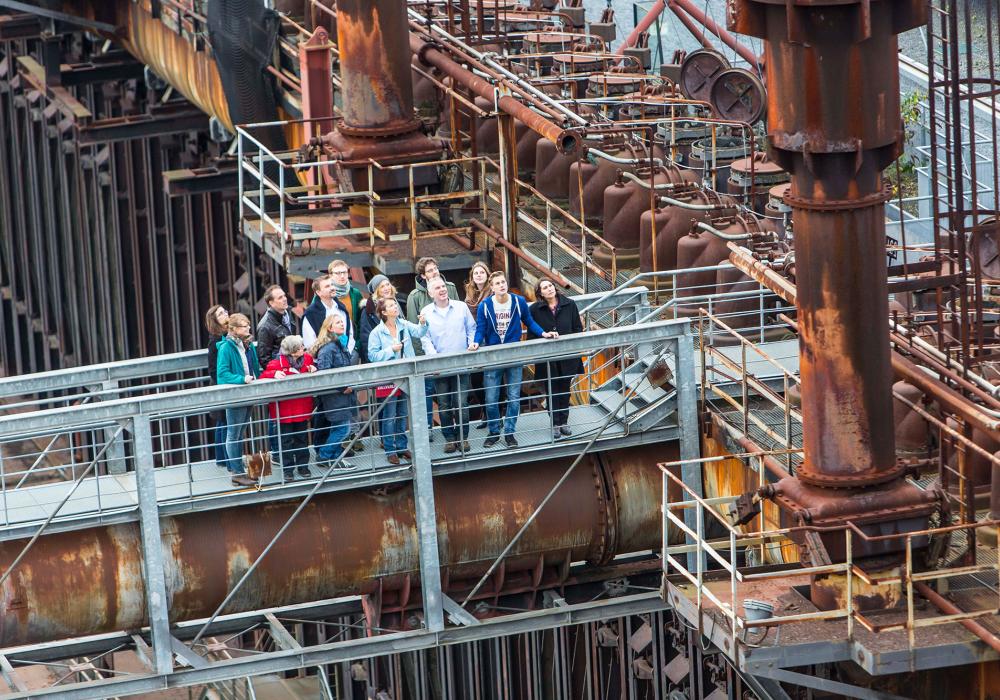
Zollverein Coal Mine Industrial Complex, Germany World Heritage Journeys of Europe
landscape of the Zollverein Mine. d. Criteria under which inscription is proposed When Zollverein Mine XII was completed in 1932, it was considered to be the most modern and beautiful coal mine in the world the output of which was, with 12,000 tons of hard coal extracted per day, four times higher than the normal average figure.
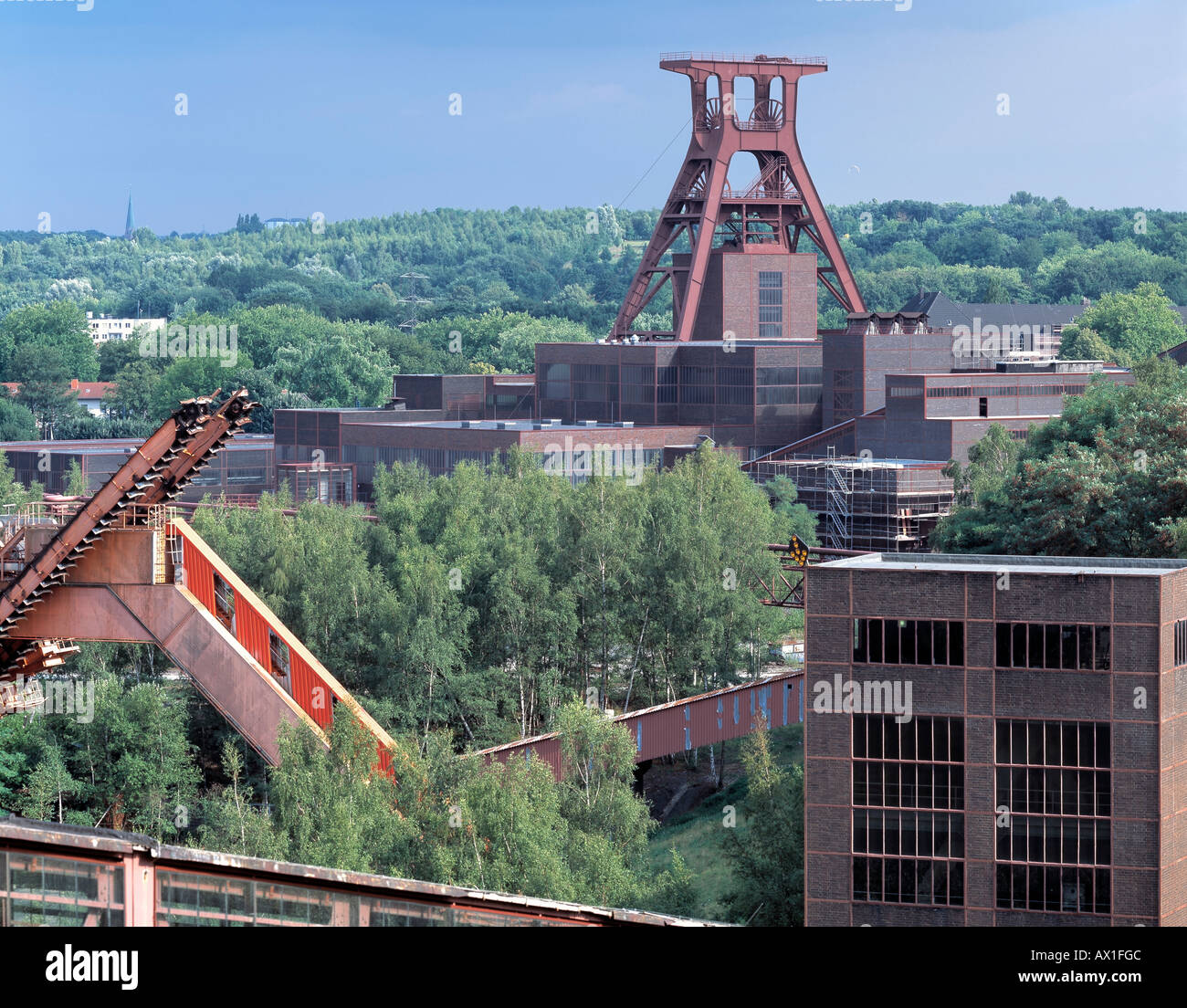
ZOLLVEREIN COAL MINE INDUSTRIAL COMPLEX, ESSEN, GERMANY Stock Photo 9541707 Alamy
Zollverein is an abandoned colliery and coking plant near the center of Essen in Germany (Ref. 6). Since 1993 the mining here stopped, and the site was turned into a derelict area, so nature could win back its territory. Most of the railway tracks and the smaller industrial leftovers are now covered with moss, grass, and weeds (Ref. 4). After the site was recognized as a World Heritage Site in.
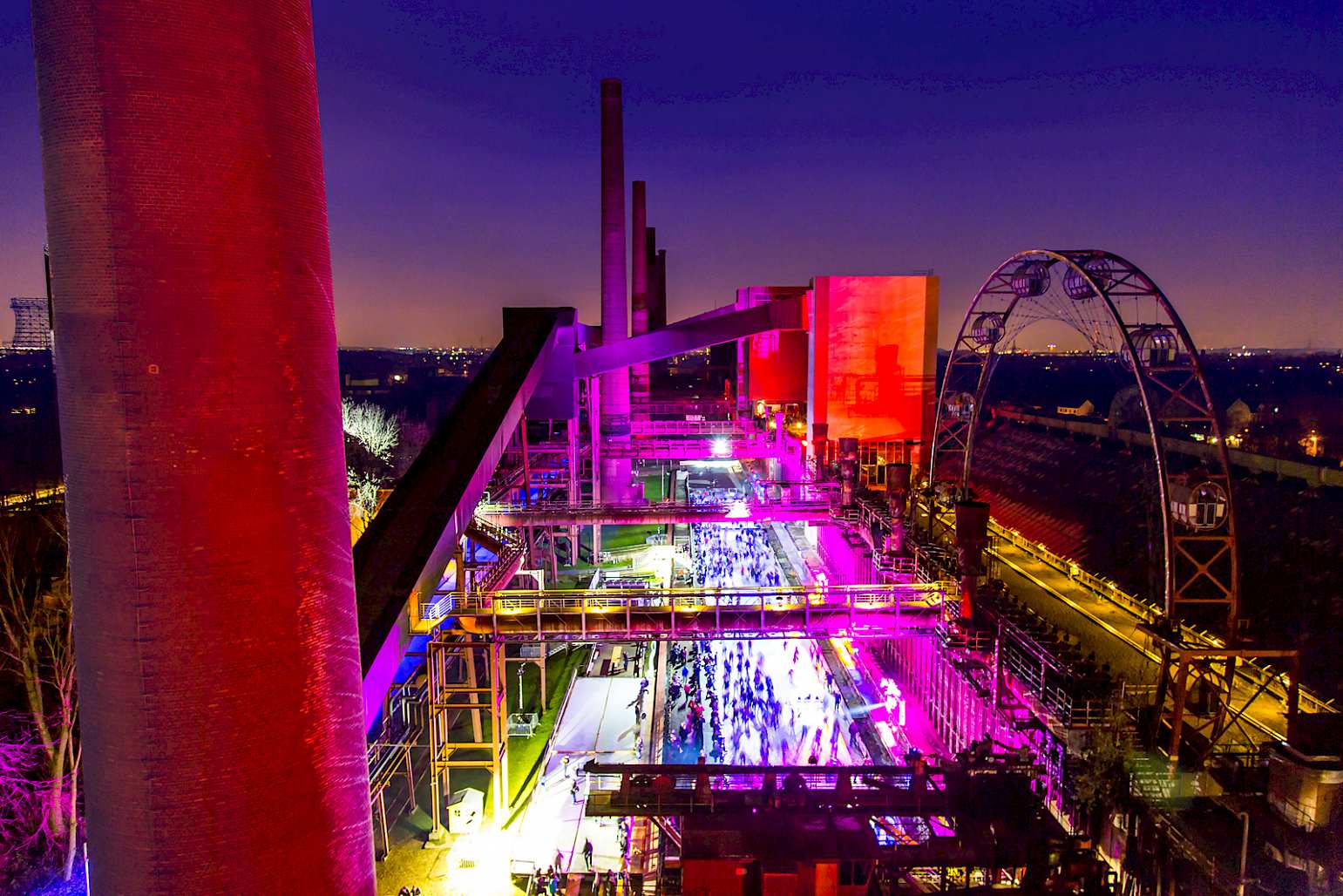
Zollverein Coal Mine Complex, Essen // From Coal and Steel to Arts and Culture IBA
Report of the 25th Session of the Committee. 2001. 25COM XA - The Zollverein Coal Mine Industrial Complex in Essen (Germany) Periodic Reporting. 2013. Periodic Reporting Cycle 2, Section II. Disclaimer. The Nomination files produced by the States Parties are published by the World Heritage Centre at its website and/or in working documents in.

The Zollverein Coal Mine Industrial Complex in Essen (Germany, 02/04/2010 Stock Photo Alamy
Zollverein was the world's largest and most modern coal-mining facility and a leading example of the development of heavy industry in Europe. At its peak, 8,.
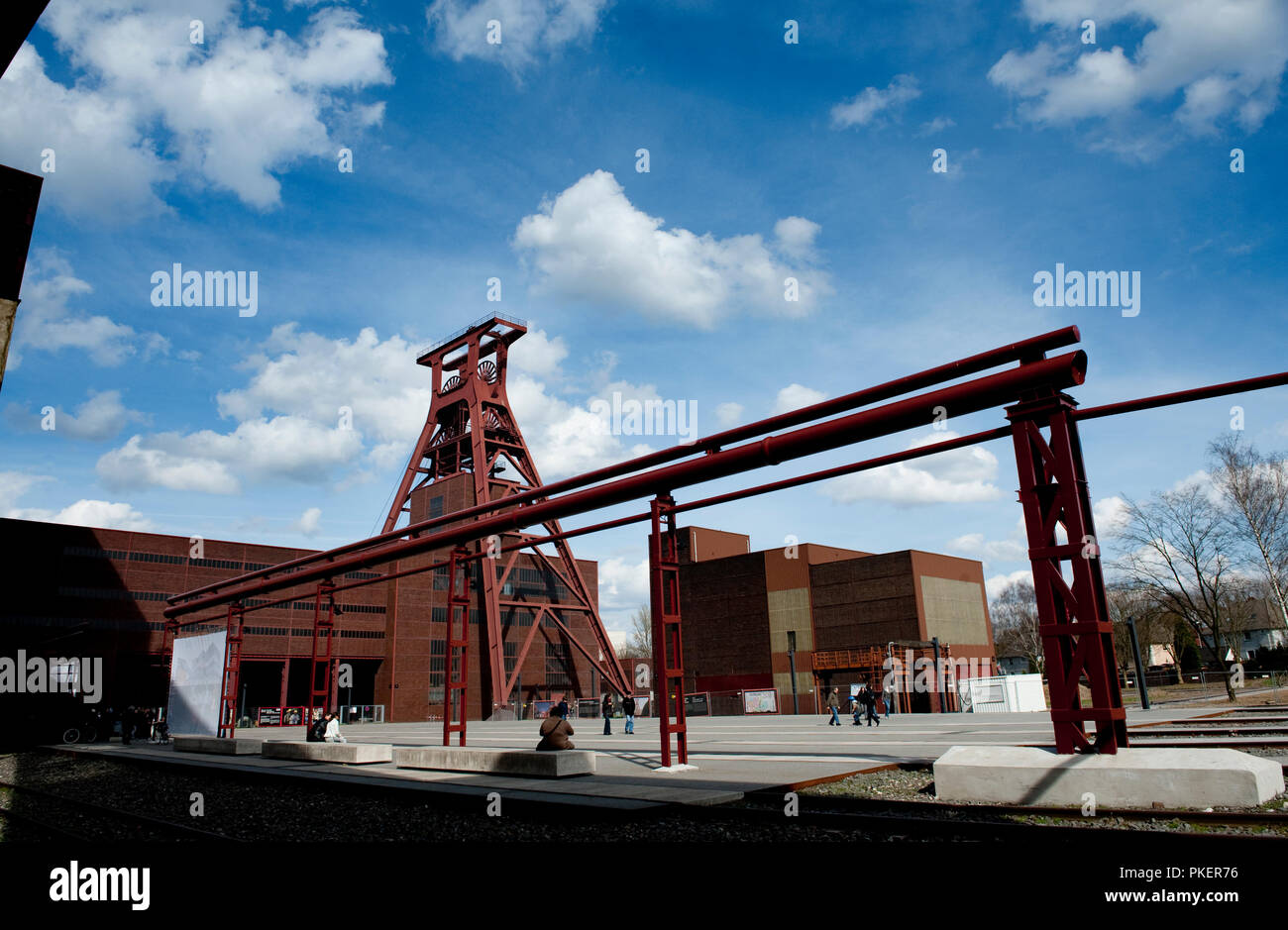
The Zollverein Coal Mine Industrial Complex in Essen (Germany, 02/04/2010 Stock Photo Alamy
Once the largest coal mine in the world, with the largest coking plant in Europe, the Zollverein is now a 247-acre complex dedicated to the creative industries, with everything from a design museum and performing arts center to a science hub and regular concerts. Declared a UNESCO World Heritage site in 2001, it still features the old mine infrastructure designed by Bauhaus architects Fritz.